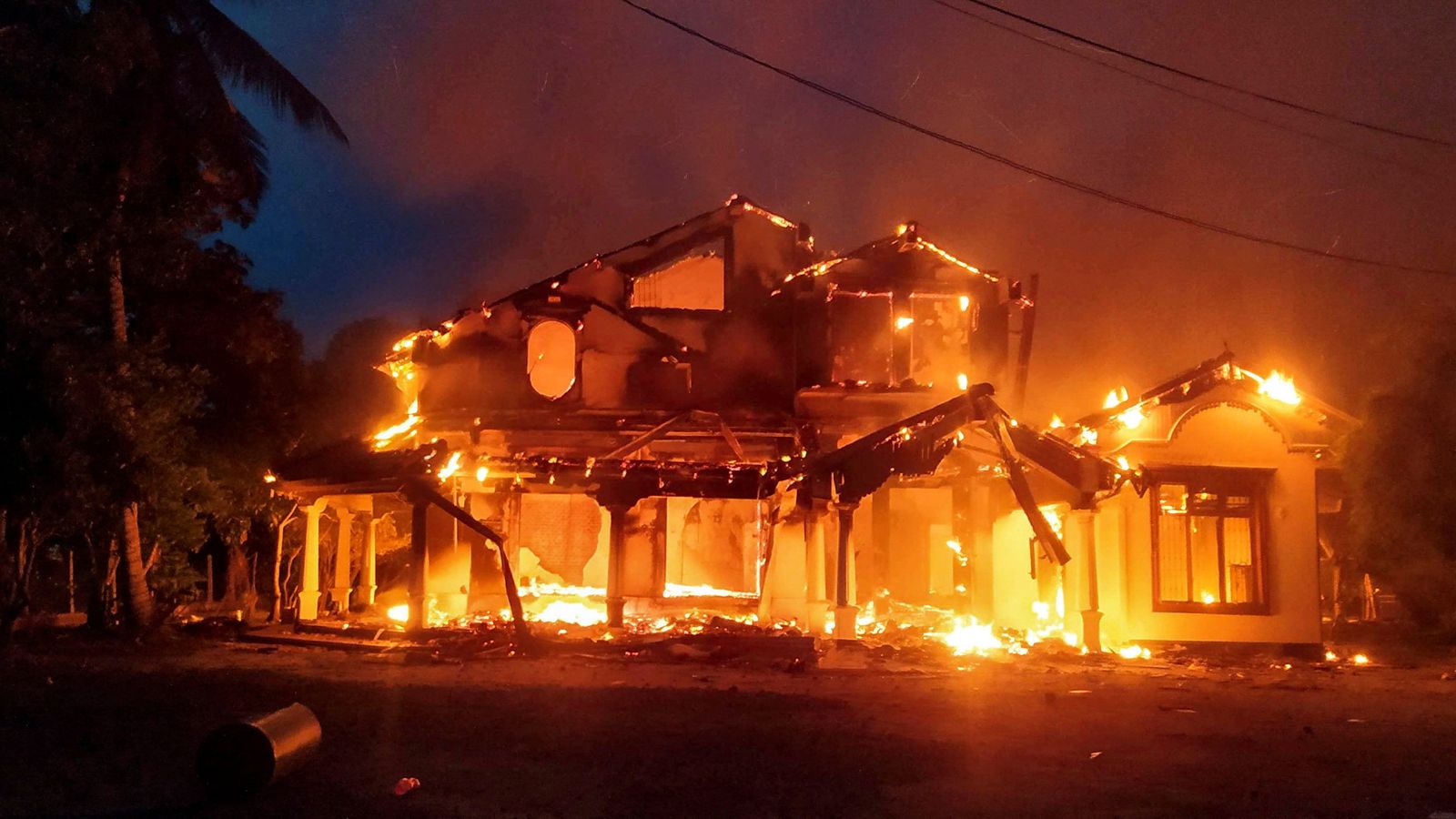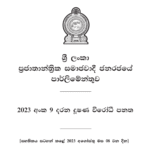The Sri Lanka Disaster Management Act, No. 13 of 2005, is a comprehensive legal framework aimed at addressing disaster preparedness, response, and mitigation. While the Act establishes key institutions and mechanisms, challenges such as compensation transparency, funding limitations, and enforcement issues need to be addressed. Strengthening implementation and ensuring fair compensation and resource allocation will enhance Sri Lanka’s disaster resilience and recovery capacity.
Expert View: Compensation should not exceed stipulated maximum
Given that Sri Lankan law stipulates that the maximum compensation payable for a completely destroyed house is Rs. 2.5 million, the government must recover any excess payments made to MPs who have lost their properties in May 2022, legal expert Dr. Pratibha Mahanamahewa has said.
Dr. Mahanamahewa said compensation to property damage is paid under the current disaster relief policy, which operates under the Disaster Management Act, enacted in 2005.
Under this policy, the government could pay only Rs. 2.5 million for a destroyed house, he said, calling for an investigation to ascertain how large sums of money had been disbursed to compensate parliamentarians whose homes were set on fire during the protests.
Analysis of the Sri Lanka Disaster Management Act, No. 13 of 2005
1. Introduction
The Sri Lanka Disaster Management Act, No. 13 of 2005, was enacted to establish a structured legal framework for disaster management in the country. The Act provides for the formation of various institutions, including the National Council for Disaster Management and the Disaster Management Centre, with the aim of ensuring efficient preparedness, response, and mitigation of disasters.
2. Key Provisions of the Act
2.1 Establishment of the National Council for Disaster Management (NCDM)
- The Act mandates the formation of the National Council for Disaster Management (NCDM) as the principal authority responsible for disaster management.
- The Council is chaired by the President and includes key ministers and Chief Ministers of Provincial Councils.
- It is responsible for formulating disaster management policies, coordinating responses, and overseeing the National Disaster Management Plan.
2.2 Disaster Management Centre (DMC)
- The Disaster Management Centre (DMC) is established under the Act as the primary executing body.
- It is tasked with implementing policies, coordinating relief efforts, and ensuring preparedness for disasters.
- The Centre works with government agencies, local authorities, and non-governmental organizations to ensure effective disaster mitigation and response.
2.3 Disaster Management Plans
- The Act mandates the formulation of the National Disaster Management Plan (NDMP) and the National Emergency Operation Plan (NEOP).
- Every Ministry, Government Department, and public corporation must prepare its own Disaster Management Plan in alignment with the national framework.
- The DMC is responsible for monitoring and ensuring the proper execution of these plans.
3. Declaration of a State of Disaster
- The President of Sri Lanka has the authority to declare a state of disaster in specific areas or the entire country if an impending or ongoing disaster exceeds the available resources.
- Upon such a declaration, emergency response measures are implemented, and necessary resources are mobilized.
- The Act ensures that both government and private organizations contribute to relief efforts under a coordinated framework.
4. Compensation and Relief Measures
- Section 15 of the Act provides for compensation to individuals who suffer property damage due to disaster response actions.
- The maximum compensation for a destroyed house is Rs. 2.5 million, as per the current disaster relief policy.
- The Divisional Secretary determines the amount of compensation, with the assistance of a government assessor when necessary.
- In case of disputes, affected parties can seek resolution through the District Court.
5. Funding and Financial Management
- The Act establishes a Disaster Management Fund to finance disaster relief and preparedness activities.
- The government allocates an initial capital of Rs. 10 million to this Fund.
- The Fund receives money from the Consolidated Fund, donations, grants, and loans.
- The Council oversees financial allocations and ensures effective use of resources.
6. Accountability and Legal Protections
- Officials and agencies acting under the Act are protected from legal action if their actions are in good faith.
- Section 24 penalizes obstruction, threats, or abuse against officials engaged in disaster management activities, with penalties including imprisonment up to two years or a fine up to Rs. 25,000.
7. Challenges and Concerns
- Transparency in Compensation Payments: Concerns have been raised regarding unequal disbursement of compensation, especially to politicians during protests, highlighting the need for greater oversight.
- Implementation Gaps: While the Act provides a strong legal foundation, enforcement and coordination among agencies remain inconsistent.
- Funding Limitations: The initial allocation of Rs. 10 million may be insufficient given the increasing frequency and intensity of disasters.
- Public Awareness and Preparedness: The Act emphasizes awareness campaigns, but implementation has been limited, leaving many communities underprepared.
8. Recommendations for Improvement
- Review Compensation Policy: A more transparent and equitable system should be introduced for disaster compensation payments.
- Strengthen Institutional Coordination: Enhanced collaboration between government agencies, local authorities, and NGOs is essential for effective disaster response.
- Increase Funding for Disaster Management: Additional budget allocations and external funding should be sought to strengthen preparedness and response capacity.
- Enhance Community Participation: Public awareness campaigns and grassroots disaster preparedness programs should be expanded to increase community resilience.
Read the Act














